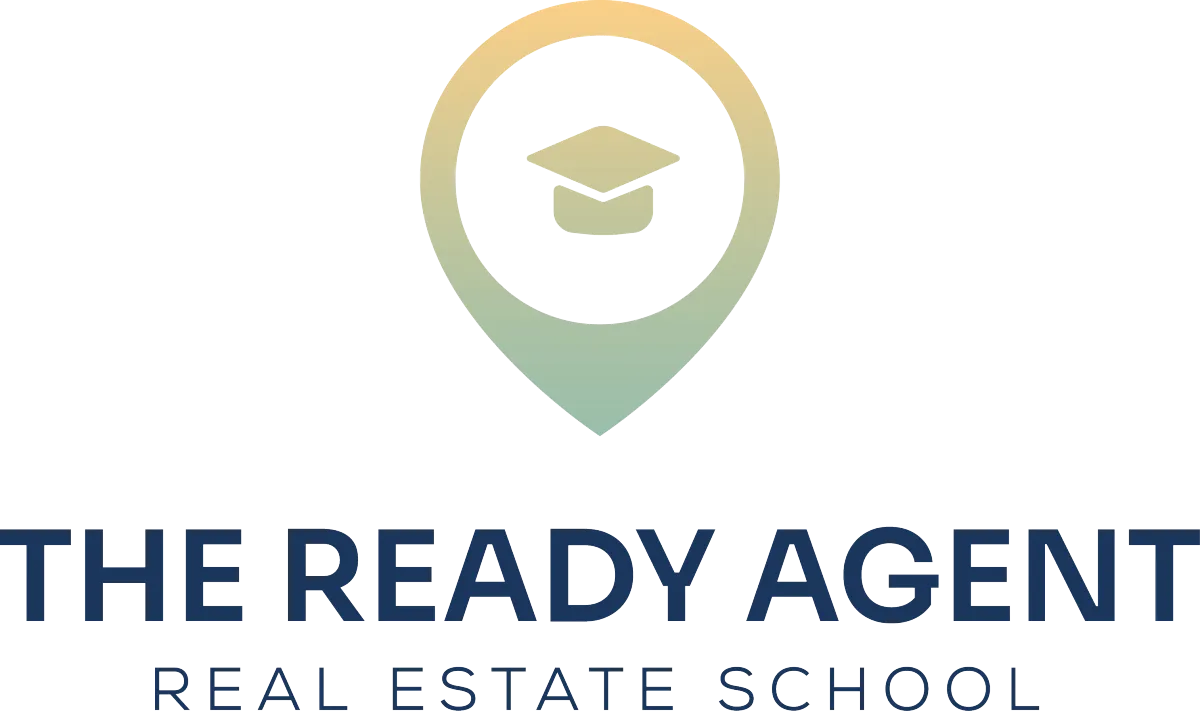
How to Choose the Best Realtor Classes Online for Your Learning Style
How to Choose the Best Realtor Classes Online for Your Learning Style

Real estate licensing hinges on choosing an online realtor class that aligns with how you learn best. Matching course features to your preferred method of absorbing information dramatically improves retention, accelerates exam readiness, and boosts confidence on test day. This guide explains what online realtor classes entail, helps you identify your unique learning style, shows how courses cater to different preferences, outlines critical selection criteria, highlights top school recommendations, examines state requirements, and shares the latest trends and success tips.
What Are Online Realtor Classes and How Do They Work?
Online realtor classes are fully digital educational programs that prepare aspiring agents for state licensing exams. They integrate video lectures, interactive simulations, and reading materials to teach real estate fundamentals, while meeting legal prerequisites. By delivering content via learning platforms—often through mobile apps, live webinars, and practice exams—these courses offer flexibility, continuous progress tracking, and exam-oriented feedback.
Most online real estate schools adhere to state accreditation and deliver pre-licensing, post-licensing, and continuing education modules. Students log into a provider’s portal, complete course units at their own pace, and submit practice assignments. Upon finishing required hours, the platform issues a certificate recognized by regulatory bodies, enabling candidates to schedule their licensing exams.
What Types of Online Real Estate Courses Are Available?
Courses vary by lifecycle stage.
Pre-Licensing: Comprehensive foundational topics required before taking your state exam.
Post-Licensing: Advanced modules aimed at new agents building transactional experience.
Continuing Education: Short, specialized courses that satisfy license renewal mandates.
Each category prepares you for specific milestones in a real estate career and ensures compliance with legal regulations.
How Do Online Real Estate Schools Meet State Licensing Requirements?
Accredited providers secure approval from state real estate commissions.
They align curriculum hours with state-mandated minimums.
They maintain course prerequisites, such as background checks or high school diplomas.
They submit provider documentation and student completion records to regulators.
By following these steps, schools deliver state-approved content that seamlessly transitions into exam eligibility.
What Are the Benefits of Online Learning for Real Estate Agents?
Online learning offers flexibility, accessibility, and self-paced progression that traditional classrooms cannot match.
Flexibility accommodates full-time jobs and personal schedules.
Accessibility ensures 24/7 access to lectures, quizzes, and instructor support.
Pacing control allows learners to review complex topics or accelerate through familiar material.
These advantages support diverse life commitments while maintaining the rigorous standards required for exam success.
Means, B., Toyama, Y., Murphy, R., Bakia, M., & Jones, K., Evaluation of Evidence-Based Practices in Online Learning (2010)
Online Learning and Student Success
Research indicates that online learning can offer flexibility and accessibility, which can be beneficial for students with diverse commitments. Self-paced learning and readily available resources can contribute to student success.
How Can You Identify Your Learning Style for Online Real Estate Education?
Determining your preferred learning method ensures you choose courses that maximize engagement. A clear self-assessment pinpoints whether you grasp information best through visuals, audio, text, or hands-on activities, laying the foundation for more efficient study sessions and higher exam pass rates.
What Are the Four Main Learning Styles: Visual, Auditory, Reading/Writing, and Kinesthetic?

The VARK model categorizes learners into:
Visual: Learners who process diagrams, charts, and videos.
Auditory: Learners who retain spoken explanations and podcasts.
Reading/Writing: Learners who prefer text-based materials and note-taking.
Kinesthetic: Learners who benefit from simulations, practice exams, and interactive modules.
Each style engages different neural pathways, enhancing concept absorption when course formats match.
Fleming, N. & Mills, C., VARK: A guide to learning preferences (1992)
The VARK Model and Learning Styles
The VARK model, which categorizes learners into Visual, Auditory, Reading/Writing, and Kinesthetic styles, is a widely recognized framework for understanding how individuals best absorb information. Matching teaching methods to these preferences can significantly improve learning outcomes.
How Can You Take a Self-Assessment Quiz to Determine Your Learning Style?
Answer a series of scenario-based questions reflecting study habits.
Receive immediate feedback showing your dominant and secondary VARK results.
Use the results to filter course platforms by matching features.
Knowing your style streamlines course selection and ensures stronger knowledge retention.
Why Does Matching Learning Style Improve Real Estate Course Success?
Aligning course delivery with your learning style boosts retention by optimizing cognitive processing. Visual aids reduce overload for pictorial learners, audio explanations reinforce auditory connections, written summaries deepen text-oriented understanding, and hands-on modules engage active learners. This tailored approach fosters confidence, leading to higher exam pass rates and accelerated licensing timelines.
How Do Online Real Estate Courses Cater to Different Learning Styles?

Top providers map their learning resources offerings to each VARK preference, ensuring every agent can thrive regardless of study habits. Understanding these alignments empowers you to choose a school that supports your optimal information pathway.
What Course Features Benefit Visual Learners?
Video Lectures illustrate complex contract concepts through animations.
Infographics breakdown transaction workflows and market trends.
Slide Decks summarize key statutes with color-coded visuals.
These features reinforce foundational topics and set the stage for deeper interactive activities.
Which Online Programs Are Ideal for Auditory Learners?
Podcasts & Recorded Lectures allow on-the-go review during commutes.
Live Webinars provide real-time Q&A with licensed instructors.
Audio Flashcards reinforce terminology through repetition.
By listening to core principles, auditory learners strengthen recall and maintain steady study momentum.
How Do Reading/Writing Learners Best Engage with Online Real Estate Content?
Comprehensive E-Books detail statutes, contracts, and licensing regulations.
Digital Note-Taking features let students annotate and highlight critical clauses.
Flashcard Generators support vocabulary drills for key real estate terms.
This approach sharpens legal understanding and exam preparedness through repetition and written reinforcement.
What Interactive Tools Support Kinesthetic Learners?
Transaction Simulators replicate real-world client negotiations.
Timed Practice Exams mimic testing conditions to build endurance.
Drag-and-Drop Activities reinforce document assembly and terminology.
Kinesthetic engagement strengthens muscle memory for exam workflows and real-life transactions.
What Key Factors Should You Consider When Choosing an Online Real Estate School?
Beyond learning style alignment, evaluating core attributes ensures you invest in a high-quality educational organization that boosts your career trajectory. Key considerations include curriculum relevance, instructor expertise, exam prep support, platform usability, cost efficiency, and social proof.
How Important Is Course Content and Curriculum Alignment with Your Learning Style?
Courses designed with multimodal content—videos, audio, text, and interactivity—allow you to switch formats as needed. Ensuring curriculum topics map to state licensing outlines and your VARK preference improves comprehension and streamlines exam preparation.
Why Does Instructor Expertise and Student Support Matter?
Licensed instructors with real-world experience deliver context-rich explanations, while dedicated support teams offer live Q&A and tutoring. This dual approach builds topical authority and fosters trust, ensuring you can resolve doubts promptly and maintain study momentum.
What Exam Preparation Resources and Pass Guarantees Should You Look For?
Unlimited Practice Exams mimic licensing test interfaces.
Performance Analytics highlight weak areas for targeted review.
Pass Guarantee provisions offer credit or refund if you don’t pass.
These resources enhance confidence and drive higher pass rates.
How Does Technology and Platform Accessibility Affect Your Learning Experience?
Platform ComponentFeatureBenefitMobile AppOffline video downloadsEnables study without internet accessResponsive DashboardProgress trackers and remindersKeeps you on schedule24/7 Support ChatReal-time assistanceResolves technical issues immediately
What Role Does Cost and Value for Money Play in Your Decision?
Package TierPrice RangeInclusionsBasic$150–$250Core pre-licensing modulesStandard$250–$400Core modules + practice exams + webinarsPremium$400–$600All resources + live tutoring + CE units
How Can Student Reviews and Reputation Guide Your Choice?
Peer testimonials on independent forums and high aggregate ratings reflect actual learning experiences. Positive feedback about course engagement, instructor responsiveness, and exam success rates signals a provider’s authority and relevance.
Which Are the Top Online Real Estate Schools for Each Learning Style?
Selecting a school that champions your preferred method of study accelerates your path to licensure. Below are exemplary providers matched to each VARK category.
Which Schools Are Best for Visual Learners?
Kaplan Real Estate Education offers video-rich lessons, animated flowcharts, and diagram-based summaries that support spatial learning and graphic comprehension.
Which Schools Are Best for Auditory Learners?
AceableAgent features audio lectures, real-time webinars, and downloadable podcasts that let auditory learners absorb concepts through listening and discussion.
Which Schools Are Best for Reading/Writing Learners?
RealEstateU provides extensive e-books, digital notebooks, and text-based quizzes that emphasize written explanations and note-taking for in-depth legal understanding.
Which Schools Are Best for Kinesthetic Learners?
Providers with robust transaction simulators and interactive practice exams, such as The CE Shop, deliver hands-on activities and timed drills that reinforce procedural memory and test readiness.
How Do State Requirements Influence Your Choice of Online Realtor Classes?
State regulations define pre-licensing hours and curriculum topics, shaping how learning style preferences apply.
How Do Course Hours and Curriculum Vary by State?
StateRequired HoursCurriculum EmphasisFlorida63Contracts & finance basicsCalifornia135Environmental and legal lawNew York75Agency law & disclosures
How Should Learning Style Preferences Adapt to State Licensing Rules?
If your state demands extensive reading hours, reading/writing learners can leverage text-intensive modules. Visual learners may choose courses with supplemental infographics to break up dense legal material, while kinesthetic learners should seek practice exam bundles aligned with state exam outlines.
Where Can You Find State-Approved Online Real Estate Schools?
State real estate commission websites list accredited educational organization providers. Checking official directories ensures you enroll in courses that fulfill legal regulation requirements and issue valid completion certificates.
What Are the Latest Trends and Tips for Success in Online Real Estate Education?
Keeping pace with industry innovations and proven strategies helps you optimize study efficiency and pass your licensing exam on the first attempt.
How Is Mobile Learning Changing Online Real Estate Courses?
Mobile apps with offline content, micro-learning segments, and push-notification reminders support on-the-go study sessions and reinforce retention through bite-sized review.
Why Is Exam Prep Critical for Passing Your Real Estate License Exam?
Consistent practice exams identify gaps in knowledge, improve time management, and reduce test anxiety. Embracing timed drills and analytics-driven feedback promotes mastery of licensing exam formats.
How Can Instructor Quality and Support Boost Your Confidence and Results?
Personalized coaching sessions, live Q&A webinars, and responsive support channels foster deeper understanding of complex topics. Direct access to experienced educators mitigates confusion and elevates study confidence.
What Are Cost-Effective Strategies for Choosing Online Realtor Classes?
Comparing package tiers, leveraging promotional offers, and selecting programs that bundle exam prep and continuing education units can lower overall expenses while maintaining comprehensive resources.
What Frequently Asked Questions Help You Choose the Best Online Realtor Classes?
Prospective agents often wonder which self-study program suits independent learners best, how to select an “easiest” course path, whether online formats serve varied styles, typical completion timelines, and average cost ranges. Addressing these concerns involves evaluating course flexibility, interactivity, accreditation, and price-to-value ratios.
By understanding these common decision factors, you can narrow your options and focus on providers that align with your learning style and state requirements.
Choosing the right online realtor class hinges on aligning course delivery with your learning style, verifying state accreditation, evaluating instructor support, and balancing cost with value. Embrace interactive features, leverage practice exams, and select providers renowned for pass guarantees to enhance your study journey. With a personalized approach, you’ll streamline exam preparation, secure your real estate license, and confidently launch your career.

Check Out Our Blog
About
Content
© 2024 The Ready Agent Real Estate School. All rights reserved


